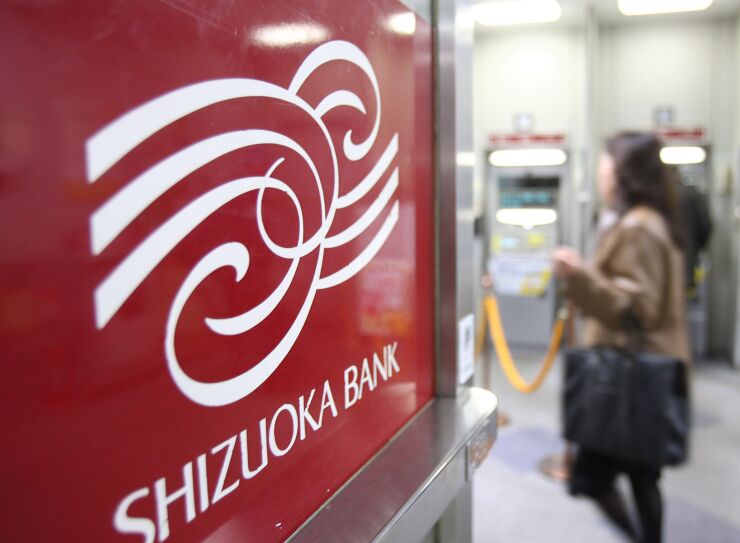Just as investment behemoth Norinchukin Bank starts to pull back on purchases of bundled leveraged loans, another Japanese lender is sizing up more.
Shizuoka Bank Ltd. plans to step up its search for yield by buying more collateralized loan obligations, according to its top executive. The regional lender is also adding U.S. Treasuries and mortgage-backed securities to its 1.6 trillion yen ($15 billion) investment portfolio, after offloading almost all of its Japanese government bond holdings, President Hisashi Shibata said.
“We’re buying CLOs that we can expect good returns on after checking their contents,” Shibata said in an interview in Tokyo. He said the bank is only interested in products that can “withstand major shocks on the scale of Lehman.”
Japan’s yield-starved lenders are becoming more selective about their investments in U.S. corporate debt even as their search for returns persists. Authorities are increasing scrutiny of banks’ investments in CLOs, with the Bank of Japan recently warning that prices may fall if economic and market conditions change.
Shizuoka Bank has raised its ceiling for CLO holdings to 60 billion yen, from 40 billion yen last year, Shibata said, while adding that it only buys top-rated products and won’t rush into purchasing more. It held 16 CLOs valued at 48.3 billion yen at the end of September and bought more this month, he said, without giving details.
The lender is a relatively minor investor in CLOs among Japanese banks, whose holdings swelled 80% to 12.7 trillion yen last fiscal year, according to the BOJ. Norinchukin Bank is the biggest of those, with 7.9 trillion yen of the instruments at the end of September.
Tokyo-based Norinchukin pared its holdings for the first time in six quarters, and Chief Executive Officer Kazuto Oku said last week that they have “almost peaked.” Falling U.S. interest rates and tighter spreads make them less attractive, he said.
Based in the prefecture of the same name, Shizuoka is one of Japan’s biggest regional banks. Like its peers, the firm is striving to find ways to deploy excess customer deposits that aren’t used for lending. Shibata said ideally it would put all of that extra cash into its investment portfolio but for the lack of attractive assets.

The bank is buying U.S. Treasuries and Ginnie Mae bonds given their relative safety against default risks, Shibata said. It increased its foreign bond holdings by more than 60% over six months to 462.7 billion yen in September. They now make up about 30% of its portfolio.
The lender’s foreign bond buying has come unstuck in the recent past. Shizuoka booked losses at its market division three years ago when U.S. Treasury yields jumped after the presidential election.
Having more than 1 trillion yen of Japanese government bonds only five years ago, Shizuoka sold the last of its holdings in the quarter ended June, a rare step for a local bank, as yields on 10-year notes sank below zero. The bank resumed buying JGBs in small amounts in the ensuing quarter, but Shibata said that was for short-term trading purposes in a bid to profit on price changes.
“For income gains, we’ll buy foreign bonds,” he said. “We don’t buy JGBs for that reason.”
In the search for yield, Shibata also said the bank is also looking for opportunities to buy domestic corporate bonds that have higher returns than loans. It held about 23 billion yen of publicly issued Japanese corporate bonds as of September.
“We can expect better returns from corporate bonds when we can’t make money from loans,” he said.





